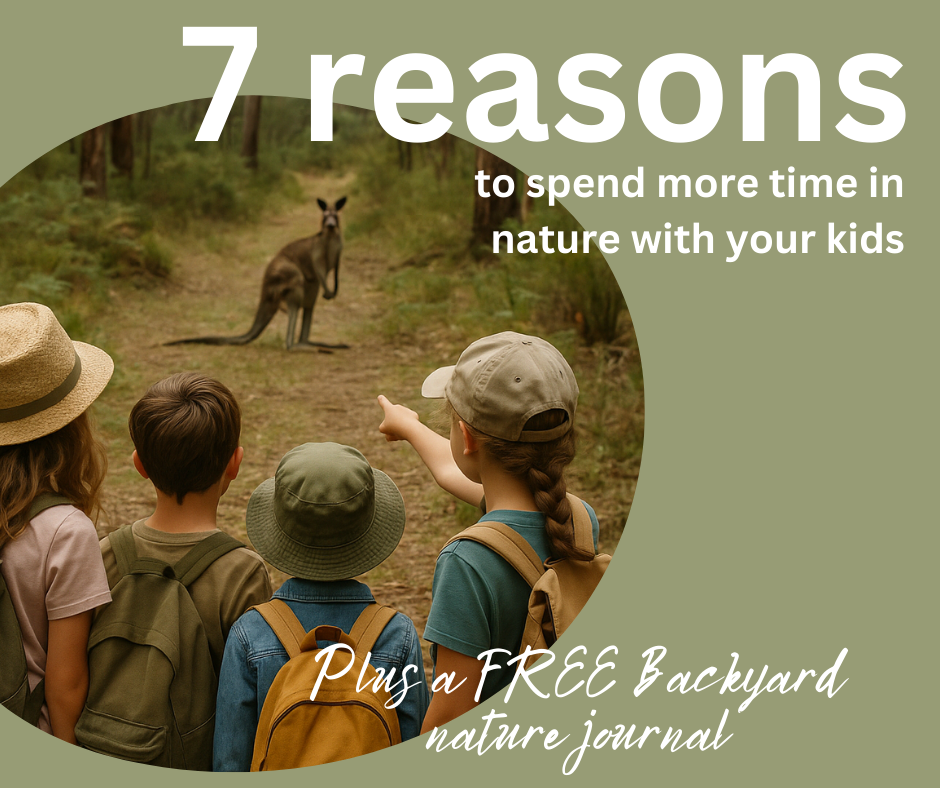7 Reasons to Spend More Time in Nature With Your Kids
- Jules England
- May 12
- 3 min read

Let’s be honest—between school runs, after school activities, and to-do lists that never end, it’s easy for family life to get swept up in the daily hustle. But what if the best antidote was right outside your door?
Nature has a magical way of slowing us down and bringing us back to what really matters. Whether it’s a stroll in the bush, a weekend picnic, or a bug hunt in the backyard, spending time outdoors has incredible benefits for your whole family.
Here are 7 great reasons to unplug and head outside together:
1. Nature helps kids (and adults!) relax
There’s a reason we feel calmer near trees or after a walk in the fresh air. Nature reduces stress, lowers anxiety, and even improves focus. For kids, it can help regulate big emotions and provide a soothing space to unwind after a busy day.
And for parents? Nature is your reset button. No emails, no dishes—just sky above, ground below, and time to connect. Even 15–20 minutes outside can work wonders for the whole family’s mood.
2. It boosts creativity and curiosity
Nature doesn’t come with instructions—and that’s the magic. Kids can turn a fallen branch into a fishing rod, build a “bug hotel” from rocks and leaves, or invent games using nothing but sticks and imagination.
Unstructured outdoor play builds creativity, independent thinking, and a love for exploring. Plus, it encourages kids to ask questions: What kind of bird is that? Why do ants follow each other?—and those questions spark learning that sticks.
3. It gets everyone moving
You don’t need a gym membership when you’ve got the great outdoors. Walking, climbing, crawling, digging—it all counts. Even exploring your local park can improve balance, strength, and coordination in young kids (and give them a healthy appetite come dinner time!).
And the best part? It doesn’t feel like exercise. It feels like fun.
4. It encourages learning by doing
Nature is hands-on learning at its best. Instead of reading about frogs, your kids might spot one near the pond. Instead of watching a video about gum trees, they can touch the bark, smell the leaves, and see what lives underneath.
Outdoor experiences help children develop observation skills, scientific thinking, and a deeper understanding of how ecosystems work. And because it’s real, it’s more memorable than anything in a textbook.
5. It brings families closer
Out in nature, there’s less distraction and more space to just be together. Whether it’s a bushwalk, a bug hunt, or sitting quietly watching clouds, these moments often lead to laughter, conversation, and connection.
You don’t have to plan anything fancy. A simple walk with no devices can give you the kind of quality time that’s hard to find indoors.
6. It’s a break from screens and schedules
Let’s face it—screens are part of modern life. But stepping away from them, even for a short time, gives everyone a chance to reset. In nature, there are no pop-up notifications, no noisy apps, no rush.
Instead, there’s presence. Focus. Breathing room. Your kids might even forget about the tablet once they start finding bugs or building cubbies.
7. There’s wildlife waiting just outside your door
You don’t have to live in the outback to spot animals. Even suburban backyards are full of life—birds nesting in gutters, insects under rocks, skinks sunbaking on warm paths. The more your kids notice, the more connected they become to the natural world.
And that connection is powerful. Kids who care about nature are more likely to grow into adults who protect it.
Ready to explore?
To help you get started, we’ve created a FREE Backyard Wildlife Journal just for families. It’s packed with fun prompts, space to draw, and easy ideas to help your kids become little nature detectives—no matter where you live.
Click here to download your free journal and start your backyard adventure today!
Because nature doesn’t just benefit your kids—it brings joy, peace, and wonder to the whole family. So step outside. There’s a wild, wonderful world waiting.




Comments